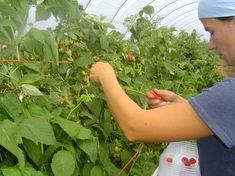
Two years of extensive talks and consultation have culminated in a landmark protocol from the Gangmasters Licensing Authority (GLA) to stamp out worker exploitation in the produce trade.
The protocol between the UK’s major retailers and their suppliers aims to ensure that tough standards are in place and that confidentiality is secure.
When the protocol was proposed, fears were raised over the security of potentially commercially sensitive information, but the GLA has allayed concerns by outlining secure plans on how intelligence should be reported to the GLA, how information will be shared between all parties and what should happen after a GLA operation to ensure that workers are protected.
Asda, Co-operative Food, Iceland, Marks & Spencer, Morrisons, Sainsbury’s, Tesco and Waitrose have all signed up.
Under the annually reviewed protocol, the GLA, supermarkets and suppliers will work together to tackle exploitation that has been uncovered by the GLA.
Suppliers’ involvement was led by the Fresh Produce Consortium (FPC) and the National Farmers’ Union (NFU), and both groups have welcomed the move.
Nigel Jenney, chief executive of the FPC, said: “The GLA has worked hard to develop a better understanding of the views of suppliers and labour users, and we are pleased to see that this is evidenced in the final version of the protocol.
“The GLA estimates that around 25 per cent of labour providers are not licensed. It is critical that the GLA applies the powers provided within its remit and takes a more strategic focus on gangmasters acting outside the licensing system.”
NFU horticulture board chairman Sarah Pettitt, who was instrumental in devising the new rules, said: “I am pleased that during this consultation, the GLA took on board many of the concerns expressed by the NFU on the detail of the operation of the protocol. It now provides a common platform for how the industry and the GLA can work together in the shared mission of preventing the abuse of workers.”
As part of the protocol, supermarkets and suppliers will provide the GLA with information about any suspected breaches of the GLA’s licensing standards. The GLA will provide advice on what action the supermarkets and suppliers could take to make sure workers are best protected.
A spokesperson for Waitrose told FPJ: “We have long been active in the industry to ensure the fair treatment of workers, and we’re proud to support this protocol. Our own responsible sourcing code of practice has been in place for over a decade and ensures the fair treatment of all workers in our supply chain - whether permanent, temporary, directly or indirectly employed.”
Paul Whitehouse, chairman of the GLA, told FPJ: “Supermarkets will not always look at the same things we are looking for. It is not what is in the contract but the reality of the relationship between employer and worker that we test and if we can encourage businesses to do that for themselves, then it helps create a level playing field.”
The protocol was launched at an event hosted by the Ethical Trading Initiative this week.



